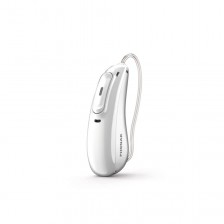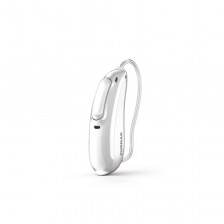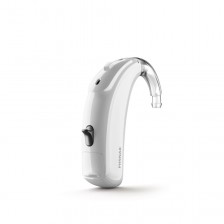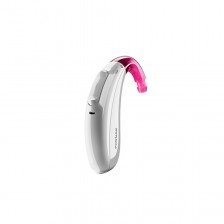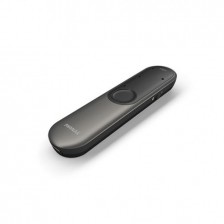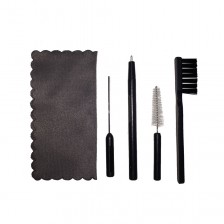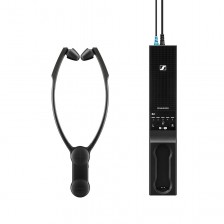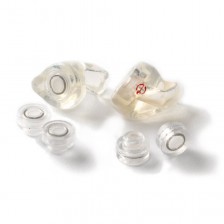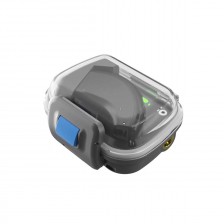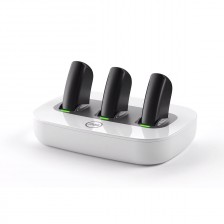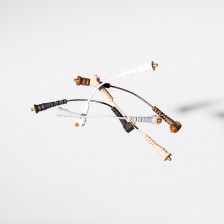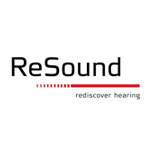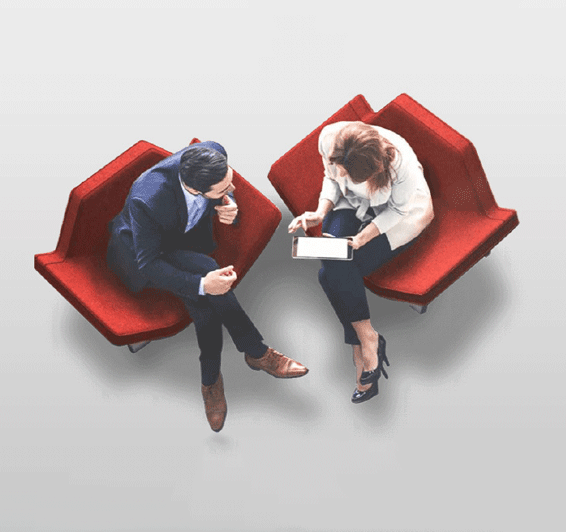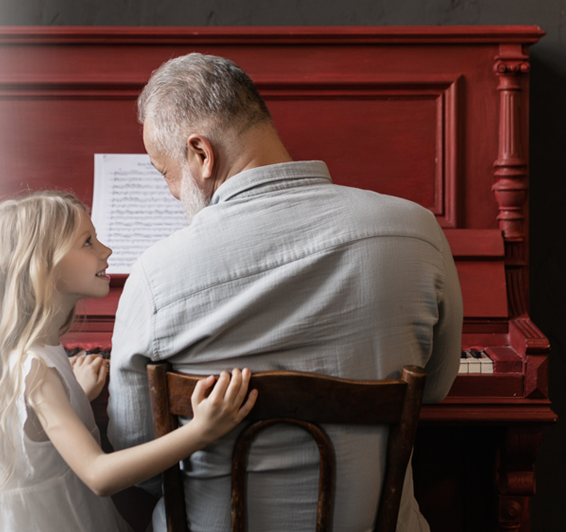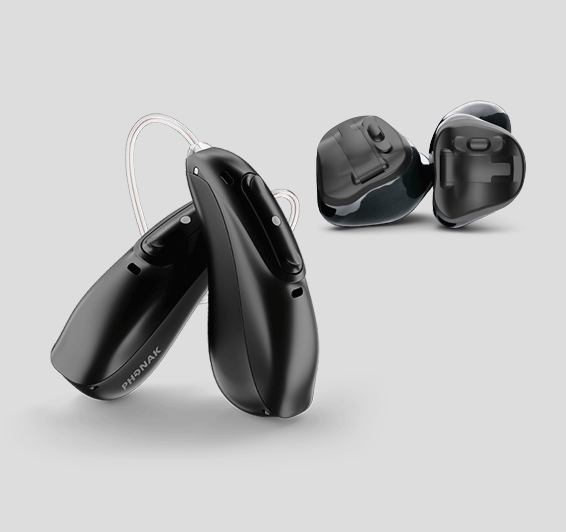How to perform a hearing test


Welcome!Our online hearing test is the first stepto find out if you are a perfect listener.It will only take 10 minutes!
Now that you're here, we invite you to take an online hearing test to make sure you hear correctly. Then, based on your audiometry, our audiologists will contact you to schedule an appointment, discuss the results and answer all your questions. Discover a simple and quick way to dedicate time to your hearing health. It will thank you for it.
In addition, we have compiled some of the most frequently asked questions that may arise before starting the hearing test. They are listed below and are sure to help you better understand what it's all about.
Let's get started!
Some people have been noticing hearing loss for some time but have not given it much thought. It is when it starts to impact their lifestyle that they decide to consult a professional to treat the situation. But what if we could act sooner?
Listen to yourself - why not take a hearing test and rest easy? If the results come back good, you can continue to enjoy your life. And if hearing loss is detected, we will have won the battle against time because then we will be ready to make an appointment for you and propose the best option for you thanks to our professional opinion.
What is the Claso online listening test?

It is a first test that you can do at home to find out your approximate listening level. It is comfortable and safe: you just have to relax, find a quiet place and have a pair of headphones ready. The instructions are very well explained so that you can follow this hearing test step by step.
With the results, our professionals will contact you for an evaluation through an in-person appointment and recommend the best hearing aids for you, if you need them. We want to help you and the more ways we can help you, the better.
What symptoms may indicate that you need a hearing test?
Often, you might be experiencing certain situations such as not hearing some sounds in your environment, having difficulty following a conversation or noticing that you need to watch TV at too high a volume. These are signs but should not be ignored if they are reiterated and prevent you from enjoying your day to day life.
Do you know our blog? Find out more about hearing health and share with us your questions and favorite topics.
Is a hearing test the same as a hearing test?
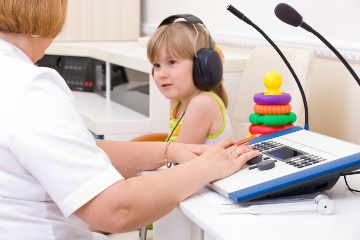
An audiometry is a much more complete process and the results are definitive. However, in a hearing test we obtain an approximate assessment although, yes, they help us to begin to address the needs of each person.
So, what is the difference between an audiometry and a hearing test?
Firstly, an otoscopy is performed to check for earwax blockages, internal inflammations, suppurations or perforations.
Secondly, a tympanometry. By creating pressure variations in the ear canal, we can observe the mobility of the eardrum and the 3 ossicles that transport sound to the cochlea.
We then perform an air conduction tonal audiometry. The objective is to measure hearing accurately using an audiometer that emits sounds at different frequencies and intensities. In this phase, we will check the sound levels you perceive. On the other hand, we will also check the intensity of sound that is uncomfortable for you.
All these tests are carried out in a totally soundproof booth where there is no input or interference from external sounds or noises.
We also perform a second tonal audiometry but in this case, by bone conduction. The objective is to discover the hearing capacity of your inner ear.
Finally, we finish with a verbal audiometry or speech audiometry to analyze the ability to distinguish between sounds in the same word. This way we know what difficulties you have in understanding spoken language.
You only have to undergo this audiometry if the results of our online hearing test suggest that it is necessary.
What are the types and degrees of hearing loss?
Depending on the causes of hearing loss, there are several types:

- Due to age: it is a loss associated with old age and gradual. It is usually the same in both ears and it is common that the sufferer is not aware of when it begins to appear but only when it starts to worsen.
- By noise: those that are more intense can damage the delicate structures of the inner ear. It can occur all at once due to an intense and very loud sound, such as that of an explosion, this being the most extreme case.
- Hereditary factors: currently, numerous studies are being carried out to learn how genes work in order to prevent the development of diseases such as this one. Specialists always recommend ear check-ups at an early age to detect any problems.
- Due to childbirth: Complications can also arise at this time and lead to problems later on. We are referring to the lack of oxygen during childbirth or the inappropriate use of certain medications.
- Retrocochlear hearing loss: the cochlea is a part of the inner ear that has a coiled tubular shape. When the hearing loss is due to a disorder of the cochlea, it is called cochlear hearing loss. When it affects the auditory nerve, it is called retrocochlear.
- Blockage of the auditory canal: This occurs when something blocks the passage of sound in the ear canal or middle ear. Most often it is cerumen. In general, the remedy is simple: good hygiene and cleaning. In more serious cases, the intervention of the otolaryngologist may be necessary to remove the element blocking the canal.
- Otitis: the inflammatory disease of the ear. There are several types depending on its origin or causes, symptoms and severity.
- Cholesteatoma: this is a cyst that originates inside the middle ear and can cause hearing loss, vertigo and even rupture of the ossicles in this part of the ear.
- Otosclerosis: due to an abnormal growth of the ear bone, affecting the three ossicles located in the middle ear, particularly the stapes. It can be recovered by surgery.
If we refer to the degree, expressed in Decibels (dB), there are usually four types using the standard average between the most relevant frequencies for speech:
- Mild: 21dB - 40dB
- Moderate: 41dB - 70dB
- Severe: 71dB - 90dB
- Profound: 91dB - 120dB
When should you have your hearing checked?
Our recommendation is that they should be done especially after the age of 50. However, at any sign of hearing loss or symptom that makes you think that something is wrong, you can contact us to prevent it from going further or start our test. We will be at your side from the very first moment and that means also in your audiometry.
Why did we opt for teleaudiology? Is it really safe?
Not only is it safe and comfortable, but it is also the future. Thanks to teleaudiology, we can offer you almost all services related to hearing aids remotely without requiring the physical presence of the patient in a hearing center. And all this with only one requirement, to be in possession of a cell phone or tablet with internet connection. Imagine being able to make a video call with your audiologist whenever you need it most, without leaving home and as if we were in front of each other. Or even apply changes to your hearing aid, adjust them and receive your impressions instantly in a natural way.
Claso's audiologists are pioneers in Spain in being able to assist you remotely in all the coexistence with your hearing aids from almost the first moment.
And while you wait for the results of your online hearing test...
Do you know how to take care of your hearing?
Avoid loud sounds
They are the main enemy of good hearing.
Use headphones with caution
Listening to music at very high volume is very harmful, especially if it exceeds the limits recommended by experts.
Protect your ears in noisy places
Did you know that you can suffer from tinnitus (ringing or buzzing in the ears)? Consider using earplugs, they protect without distorting the sound.
Clean the external auditory canal
Do not eliminate the remains of earwax completely, but maintain good hygiene. Change the swabs for specific mineral oils.
Exercise
It promotes blood circulation and consequently, the flow to the area will improve hearing. And you feel better too.
Train your mind
It also helps to improve your hearing. Puzzles, crossword puzzles, etc... Shall we play?
Do you have more doubts?
You should keep in mind that even if you feel identified with some of these experiences it does not necessarily mean that you suffer from hearing loss, but it is always advisable to check your hearing health with professionals. You can consult us or request a no-obligation appointment to check if you have hearing loss and, if so, at what level.
Let's get started!
We remind you that we will not collect personal data while you take the online audiometry of Claso audiología. The only thing you will need to provide us with is your contact details to obtain the results of the online audiometry and receive more information about Claso Audiología's products and services.
